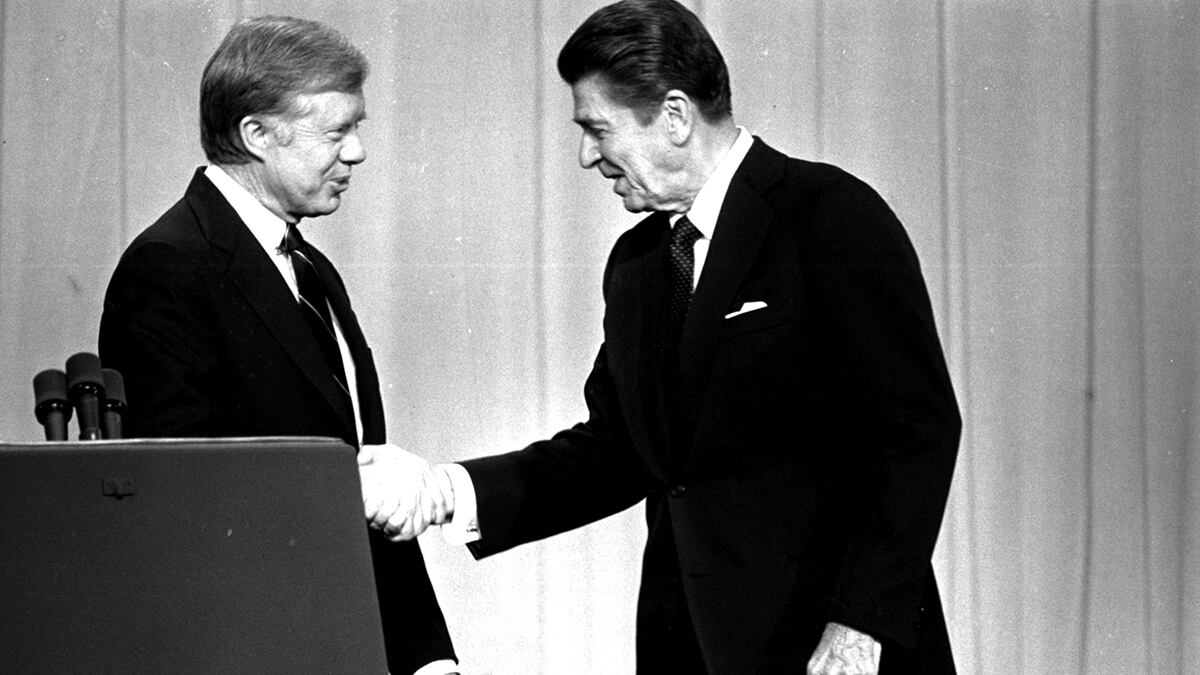Greg Sargent goes to work today to debunk the 2012-1980 parallel.
The economy was in worse shape in 1980 than it is today. Jimmy Carter could easily be criticized for mismanaging the economy and foreign affairs, given the Iranian hostage crisis. Obama, by contrast, consistently polls better than Romney on national security. What’s more, as Reagan biographer Craig Shirley has explained, the electorate of 1980 is vastly different than it is today. Far more states were in play, and Dem swing voters — the so-called “Reagan Democrats” — formed a much bigger chunk of the Democratic Party, making a late break of such a significant magnitude much more feasible than today. The electorate is far more polarized and the map far narrower this time around.
Ed Rollins, who worked on the Reagan campaign in 1980, notes yet another key difference: Romney is not Reagan, and Obama is not Carter. As Rollins says of Romney: “On his best day, he’s not a Ronald Reagan.” Carter was partly undone because of his debate performance; that’s less likely to happen to Obama.
There is another difference, at least equally crucial and often overlooked today: 1980 was a three-way race. Reagan won a landslide of the electoral vote, but less than 51% of the popular vote. President Carter's support collapsed in the last weeks of the campaign, with dissident liberals breaking off to support the independent candidacy of John Anderson, who scored 6.6% of the vote - the fourth best performance by an independent since World War II, after Ross Perot in 1992 and 1996 -- and George Wallace in 1968.
If Anderson had not run - if Carter had not so alienated his liberal base - what would have happened in November? Who can say - but let's remember the actual events of 1980, not a too-gratifying legend.
(Video: A snippet of the famous Bentsen-Quayle interaction that spawned a long-lasting political meme -- and inspired this headline.)
Editor's note: This post has been updated to reflect George Wallace's noxious candidacy.






